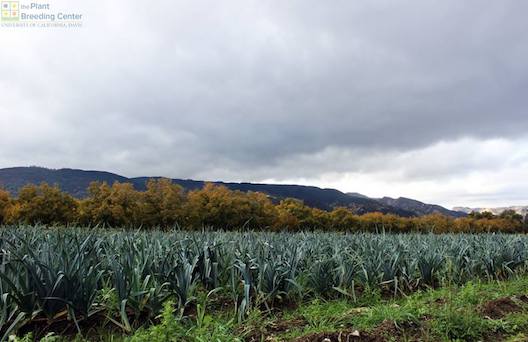With short days over the winter break, many of us were able to enjoy sunrise, sunset, and incredible clear starry skies in between, reminding us of the mysteries of our planet, as well as of human nature. Here’s hopes for a peaceful and healthy year in 2018. We will do our best to spread that spirit.
During the last few weeks of 2017, a few things happened on the organic policy front that are worth noting. We will discuss one of those things in this article, having to do with the welfare of organically raised livestock. Full Belly is home to a flock of sheep, several pigs and as of 12/10/17 a delightful group of 8 healthy piglets! While many of our CSA members and farmers market customers have let us know that they would rather we not include farm animals in our production system, we have decided that the animals are an important element of our healthy farm, and we treat the farm animals with care and respect. One of the most active responsibilities during the break, was the pressing daily need to care for the chickens, sheep, pigs, cows, goats, cats and dogs that make the farm their home.
Most people, when they buy organic milk, eggs and dairy, are purchasing brands from farmers that they don’t know personally. But because of the organic seal, they have every reason to believe that the organic label certifies that those products come from animals that are humanely raised. Unfortunately, this is not always the case and organic farming advocates have pushed for stronger rules on organically raised farm animals. While many organic farms follow humane practices, a large proportion of organic meat, eggs and dairy have been coming from producers that were not following minimum standards that would allow the animals access to fresh air and space to move around.
This is because the federal organic rules are not specific enough in their instructions about the way that farm animals should be raised. Cows should be out on pasture, chickens should have access to fresh outdoor air, young animals should be allowed to stay with their mothers for specified periods after they are born. But the animal welfare portion of the organic regulations needs to be improved and in 2011, a set of detailed, formal recommendations were issued by the National Organic Standards Board (NOSB), a group of farmers, consumer advocates and scientists that officially oversee the federal organic label.
The proposed animal welfare rules were supported by all parts of the organic industry, save some of the people running very large confined animal production facilities. After strong lobbying by various industry organizations, the NOSB backed down and reduced some elements of the requirements. Nevertheless, the new rules were definitely an improvement, especially in terms of providing minimum space requirements for all species with the goal of promoting the well-being of the animals. The rules were finalized in January 2017, but caught up in the regulatory freeze of the Trump administration.
All of this became history on 12/15/17 when the US Department of Agriculture announced its decision to abolish the proposed organic animal welfare rule all together. The reason? Apparently the agency believes that organic regulations should not “encompass stand-alone animal welfare concerns.” The Agency also expressed concern that the rules could “hamper market-driven innovation and evolution and impose unnecessary regulatory burdens.” The National Pork Producers Council contended that animal production practices have nothing to do with the basic concept of “organic.”
Consumers who care about animal welfare should know that when farmers give animals more living space and more consistent access to the outdoors, the price of eggs and meat will go up. But it’s time for the organic label to signify that the animal’s best interests are paramount, not just the economic interests of producers and consumers. Throwing out the animal welfare rules despite overwhelming support from the public and the farming industry (99% of comments in the public record were in favor of the rules) has undermined the public process and should not be allowed to stand.
— Judith Redmond
P.S. If you are concerned about this issue, you can let it be known by writing to the USDA. What if 100,000 people wrote in? Because the decision to throw out the rule was made during the holiday season, the comment period is almost over — the deadline is on January 17, 2018. Go to this page and click on the “Comment Now” button. Even a simple paragraph will do as long as you say who you are, why you care, and why you think that the organic label should stand for strong animal health and welfare standards. In case you need it, here’s the docket number AMS-NOP-15-0012; NOP-15-06, and the Regulatory Information Number (RIN) 0581-AD75 . You might want to include these to be on the safe side!

